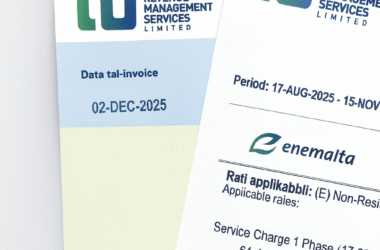With a healthcare system dating back to the 14th century – in fact, Malta is considered to have hosted the world’s first hospital, St. Francis at Rabat. Malta offers both public and private sectors to ensure medical services are provided for residents and visitors alike. The publicly funded sector, resembling the British model, provides universal access to medical care, while the private sector provides those seeking expedited services through insurance coverage.
Let’s get into more detail about the healthcare system in Malta, and how you can navigate it easily.
Public Healthcare in Malta
Public healthcare in Malta is predominantly financed through taxation, which covers a range of medical needs, from routine check-ups to complex surgical procedures. Moreover, the network of health centres spread throughout the Maltese Islands enables access to primary healthcare services in most towns. These centres offer specialised clinics and therapeutic interventions alongside general medical consultations.
Private Healthcare in Malta
Private healthcare in Malta is experiencing growth as more residents opt for private health insurance. This trend has led to an increase in the number of private healthcare clinics and hospitals across the country. Many general practitioners (GPs) who work within the public healthcare system also practise privately offering patients more options for accessing medical care.
One notable and convenient feature of the Maltese healthcare system is that specialists often practise at local pharmacies, which allows patients to schedule appointments ahead of time without having to travel to a hospital.
Patients can easily book appointments at their chosen pharmacy, depending on their needs.
For individuals with chronic illnesses, medication is available free of charge, and they have the flexibility to select their preferred pharmacy through the Pharmacy of Your Choice (POYC) system.
Every two weeks, patients can collect their prescribed medication directly from the pharmacy, as it’s sent from the central hospital. This process is particularly beneficial for older individuals who hold the European Blue Card, providing them with accessible healthcare for their needs, though this system is not applicable to American visitors.
On the main island of Malta, there are three prominent private hospitals: St. James Hospital, St. Thomas Hospital, and the DaVinci Health Clinics. These facilities provide medical services, starting from routine blood tests to advanced diagnostic scans and complex surgical procedures. Equipped with state-of-the-art medical technology, including 4D ultrasound, digital radiology systems, laser-assisted surgery, and MRI and CT spiral scans, these hospitals ensure high-quality care for their patients.
It’s important to highlight that both St. James and St. Thomas hospitals offer 24/7 emergency room and ambulatory services.
Both the public and private healthcare systems in Malta are overseen by the Ministry of Health, Elderly, and Community Care, to ensure regulatory oversight and coordination of healthcare provisions across the nation.
Healthcare Access for International Individuals
Here’s what you need to know about healthcare asses for foreigners:
- Expats relocating to Malta are subject to national insurance contributions akin to Maltese nationals, typically amounting to around 10% of their gross salary or income if self-employed.
- European Union citizens visiting Malta can use the European Health Insurance Card (EHIC), affording them access to necessary medical treatments at public healthcare facilities without additional charges. However, it’s essential to note that the EHIC serves as a supplementary measure to health insurance and may not cover all medical expenses, especially those related to transportation for severe conditions or emergencies.
- For expatriates planning stays exceeding three months, access to free healthcare services is facilitated through state-run hospitals and clinics upon presentation of the S1 obtained from their country of origin. This form, once registered with the Maltese Health Department Entitlement Unit, facilitates the issuance of a Certificate of Entitlement, ensuring continued access to healthcare provisions during their residency in Malta.
- Non-EU citizens relocating to Malta are advised to procure health insurance coverage encompassing treatments abroad, including medical evacuations. Notably, some insurance policies may not include provisions for medical evacuations, and this requires an evaluation of insurance policies to ensure adequate coverage for healthcare needs during their stay in Malta.
- Specific bilateral agreements between Malta and certain countries such as the United Kingdom and Australia facilitate reciprocal arrangements for residents, allowing them to receive free medical and hospital care for limited durations during their stay in Malta.
Global Healthcare Coverage
Locally purchased health insurance policies typically do not offer coverage outside the country unless specifically requested and customised for international use. It is imperative for expatriates to verify the extent of coverage provided by their existing insurance policies and, if necessary, request international coverage from their insurance providers, albeit with an additional charge.
7 Hospitals in Malta to Keep Into Consideration
Mater Dei Hospital is the primary healthcare institution, offering a range of medical services.
St. Luke’s Hospital in Pietà serves as the secondary healthcare facility, providing specialised treatments such as open-heart surgeries, transplants, and psychiatric care.
Malta also has specialised hospitals such as the oncology-focused Paul Boffa Hospital in Floriana, the geriatric-centred St. Vincent De Paul Hospital, and the sole hospital serving Gozo, the Gozo General Hospital. Noteworthy among these is St. Philip’s Hospital, specialising in orthopaedic surgeries and plastic and reconstructive procedures.
The historic St. James Hospital, along with its associated modern clinics, offers a wide spectrum of medical treatments, from routine pathological tests to cosmetic surgeries.
In rural areas, local clinics provide essential medical services, supported by administrators who dispense prescription medicines prescribed by health centres.
GPs and Dental Care in Malta
In Malta, GPs are key players in healthcare, being the first contact for patients even on evenings and weekends. Unlike some places, Maltese citizens aren’t required to stick to one GP; they can see any doctor at their local health centre. Expatriates using state medical care need to ensure their doctor is part of the government scheme to avoid extra fees. One should note, however, that impromptu GP visits are normally reasonably priced, falling under EUR 30 per visit.
GPs focus on educating patients and preventing health issues. The system works without appointments, ensuring quick access to care. GPs also make house calls after 8 pm for urgent cases.
For dental care, public hospitals and health centres provide free emergency treatment, though it’s limited. Some private dentists also offer urgent services when needed.
Prescription Medications Are Subject To Specific Regulations and Reimbursement Policies
Medication prescribed during inpatient stays or within the initial three days post-discharge is provided free of charge, contingent upon the presentation of a valid European Health Insurance Card (EHIC). However, medications prescribed thereafter incur costs that are non-refundable under EHIC agreements.
Pharmacies Operate During Business Hours
Pharmacies, an integral component of the healthcare system, operate during regular business hours, with at least one pharmacy serving every village across the islands. Prescriptions are exclusively issued by consultants and doctors, reflecting a professional oversight in medication management.
Emergency Medical Care
In emergencies, access to immediate medical care is facilitated through emergency wards in all hospitals, ensuring prompt treatment for critical conditions. While emergency care is available to everyone, proof of insurance is required once the patient’s condition stabilises. The emergency hotline, 112, offers free assistance, directing individuals to appropriate medical services as needed.
Conclusion
Whether you call Malta home or are just visiting, understanding the country’s healthcare system is essential. It’s reassuring to know that Malta’s hospitals hold a strong reputation, and the Ministry of Health oversees everything to ensure good care.
For more important insights and valuable tips on life in Malta, feel free to visit Expatax.mt.







